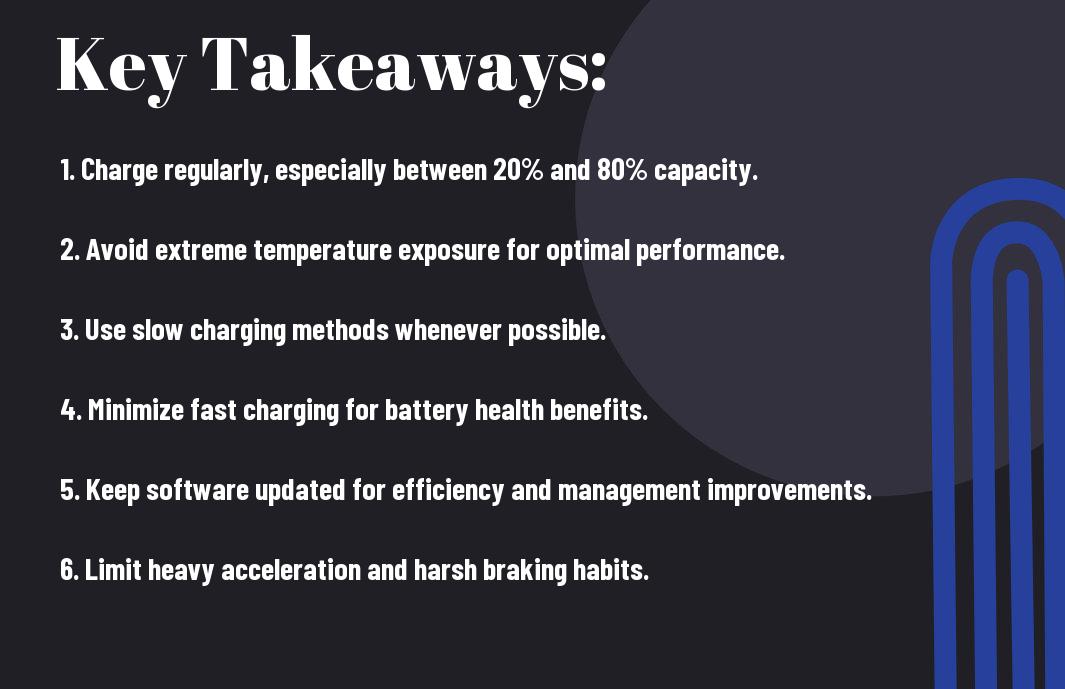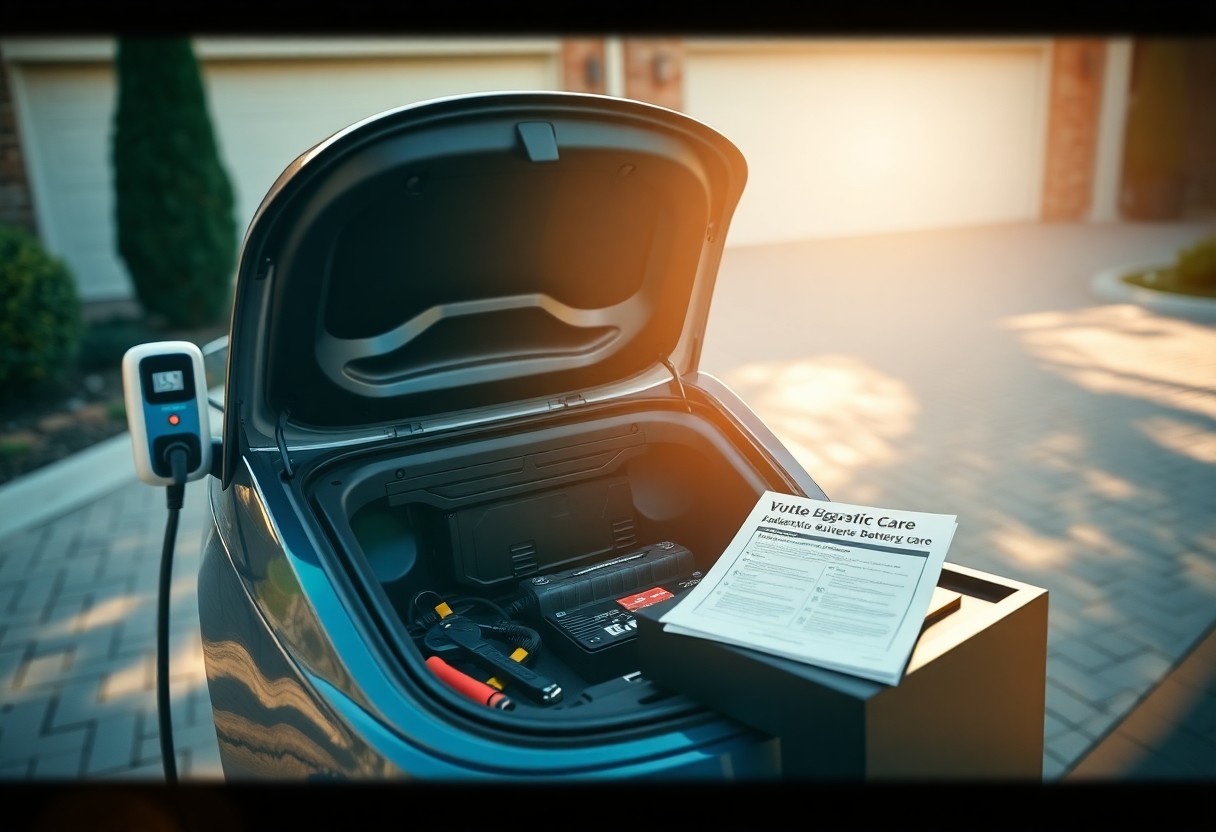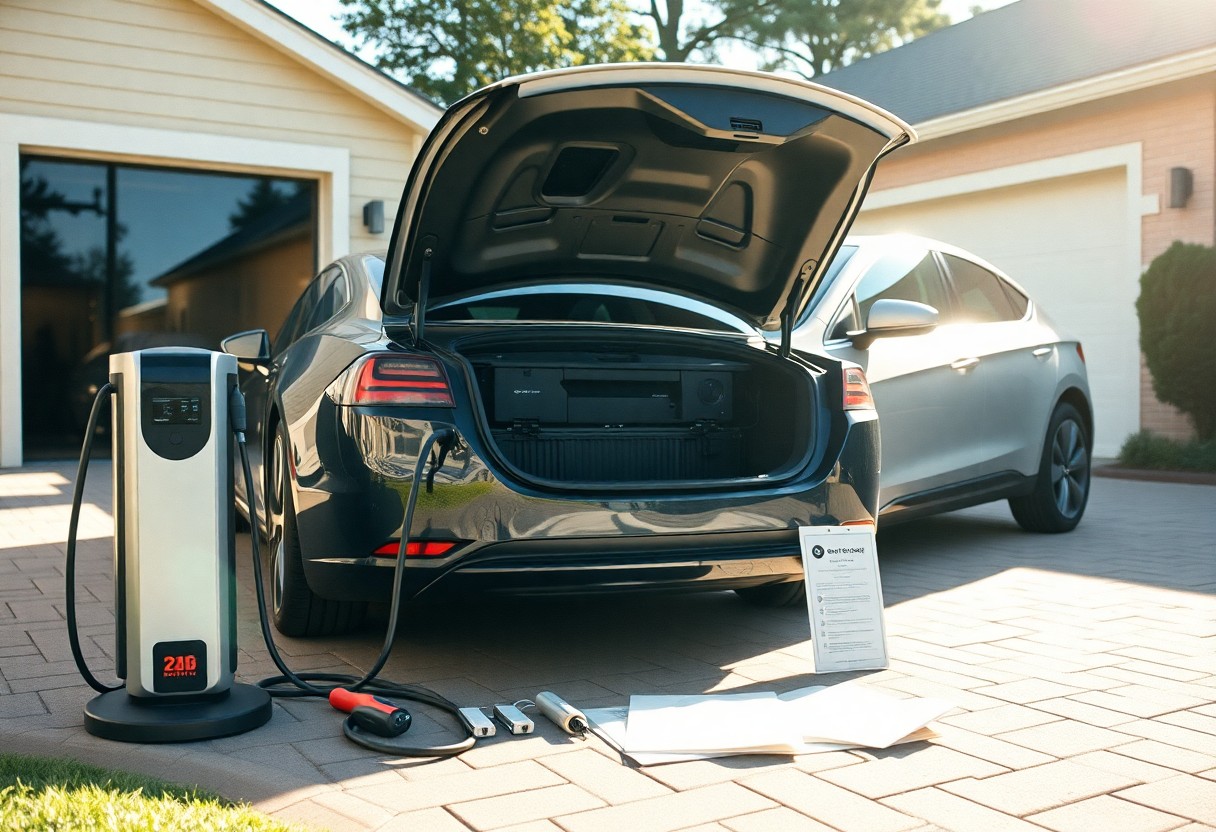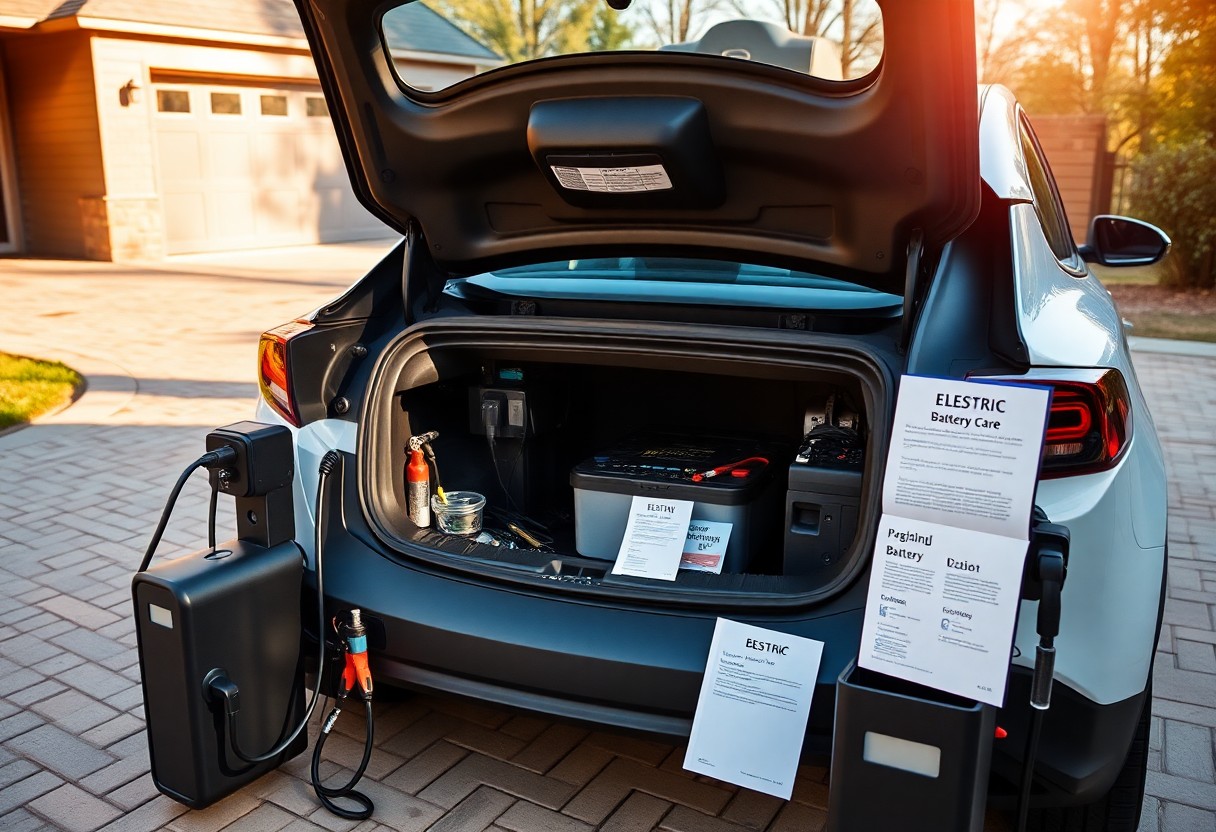Many electric vehicle owners are seeking ways to extend the life of their battery and ensure its longevity. By understanding the factors that affect battery performance and implementing best practices, they can enhance the efficiency and lifespan of their electric vehicle’s battery. This informative guide will provide important tips and techniques for drivers to maximize their battery’s potential, ensuring that it remains reliable and effective throughout its lifespan. Whether they are new to electric vehicles or experienced drivers, this knowledge can significantly benefit their overall driving experience.

Understanding Electric Vehicle Batteries
To understand electric vehicle batteries, one must explore their composition and operational dynamics. As technology advances, the insights into battery health are vital for optimal performance. For detailed analysis, one can refer to EV Battery Health Insights: Data From 10000 Cars. Proper knowledge equips owners to extend the lifespan of their vehicles.
Types of Batteries Used
About electric vehicles, various battery types are utilized to meet energy demands and efficiency standards. The following table outlines the most common types:
| Lithium-Ion Batteries | Preferred for their high energy density. |
| Lithium Iron Phosphate (LiFePO4) | Known for thermal stability and safety. |
| Nickel-Metal Hydride (NiMH) | Used in hybrid vehicles for moderate energy storage. |
| Sodium-Ion Batteries | Emerging technology with sustainable options. |
| Solid-State Batteries | Offering improved safety and energy capacity. |
The understanding of these varieties assists in making informed choices in electric vehicle ownership.
Factors Affecting Battery Life
An appreciation of the factors affecting battery life contributes to better management of electric vehicles. Influencing elements include:
- Temperature extremes
- Driving habits
- Charging practices
- Depth of discharge
- Battery management systems
Recognizing these influences can lead to improved battery performance and longevity.
Vehicle maintenance can further enhance battery durability by considering various factors that directly impact its lifespan. These factors include:
- Regular software updates
- Preventive maintenance checks
- Maintaining optimal charge levels
- Avoiding fast charging
- Driving conservatively
Recognizing these strategies allows individuals to optimize their electric vehicle’s efficiency and battery health.
Charging Practices
Assuming one wants to maximize electric vehicle battery life, adopting proper charging practices is crucial. This involves understanding how and when to charge, ensuring a balance between convenience and battery health. By following certain guidelines, drivers can prolong the lifespan of their vehicle’s battery while still enjoying the benefits of electric mobility.
Optimal Charging Techniques
Optimal charging practices involve utilizing Level 2 chargers for daily use and taking advantage of overnight charging when possible. He or she should aim to keep the battery level between 20% and 80%, which promotes better battery health. Furthermore, reducing exposure to extreme temperatures during charging can help in maximizing battery efficiency.
Avoiding Overcharging
Overcharging can degrade battery health over time. He or she should be aware that consistently charging the battery to 100% and leaving it plugged in for extended periods may lead to diminished performance and shorter lifespan.
It is vital for drivers to be mindful of their charging habits. By employing smart charging practices, such as using a programmable charger or setting charging limits through the vehicle’s interface, they can effectively prevent overcharging. Ensuring that the battery does not remain at maximum capacity for long durations will significantly enhance its longevity and overall performance.

Temperature Considerations
All electric vehicle owners should be aware of how temperature can affect battery performance and longevity. Extreme temperatures, whether hot or cold, can have adverse effects on battery life, which makes understanding these conditions important for maximizing the vehicle’s potential. Monitoring battery temperature and managing charging practices can help ensure optimal functionality throughout varying weather conditions.
| Extreme Temperature Effects | Impact on Battery |
|---|---|
| High Temperatures | Accelerated degradation, reduced capacity, and safety risks. |
| Low Temperatures | Reduced performance, lower range, and longer charging times. |
Effects of Extreme Temperatures
About extremes in temperature can significantly affect an electric vehicle’s battery performance. High temperatures may lead to rapid battery degradation, resulting in diminished capacity and potential safety hazards. Conversely, low temperatures can cause a noticeable drop in efficiency, impacting range and necessitating longer charging periods. Understanding these effects helps in making informed decisions for battery maintenance.
| Ideal Operating Temperatures | Battery Performance |
|---|---|
| Optimal Range | 20°C to 25°C (68°F to 77°F) |
| Performance Consistency | Ideal recharge efficiency and lifespan. |
Ideal Operating Temperatures
Between 20°C and 25°C (68°F to 77°F), electric vehicle batteries perform at their best, achieving optimal efficiency while maximizing lifespan. In this temperature range, the chemical processes within the battery operate smoothly, ensuring consistent recharging and energy discharge rates. Therefore, maintaining battery temperatures within this optimal zone is beneficial for long-term durability.
| Additional Considerations | Battery Maintenance Tips |
|---|---|
| Temperature Management | Use thermal management systems. |
| Charging Practices | Charge in moderate conditions whenever possible. |
Even as temperatures fluctuate, implementing effective battery maintenance strategies can mitigate extremes’ adverse effects. Utilizing thermal management systems can help regulate battery temperature, while choosing appropriate charging times also contributes to optimal conditions. By taking these steps, vehicle owners can ensure their electric vehicle remains efficient and functional over an extended period.

Driving Habits
Many factors influence the lifespan of an electric vehicle’s battery, with driving habits being one of the most important. He or she may not realize that daily driving choices significantly impact battery health. By adopting efficient driving practices, they can help extend the durability of the battery and maximize its capacity over time.
Impact of Aggressive Driving
On the road, aggressive driving—such as rapid acceleration, hard braking, and excessive speeding—can lead to increased energy consumption and battery wear. They may unknowingly shorten the battery’s lifespan each time they drive aggressively, ultimately resulting in costly replacements sooner than expected.
Benefits of Smooth Acceleration
At the same time, smooth acceleration is beneficial for an electric vehicle’s battery life. They may find that driving with a gentle touch not only conserves energy but also enhances driving comfort. This approach promotes a more efficient use of the vehicle’s power and ultimately supports longer battery life.
Plus, maintaining steady and moderate speeds allows the regenerative braking system to work optimally, further conserving energy. He or she should note that less strain on the battery during smooth driving habits leads not only to improved efficiency but can also enhance their overall driving experience. Adopting such techniques can contribute to a healthier battery and optimal vehicle performance over the long haul.
Regular Maintenance
Despite the advanced technology present in modern electric vehicles, regular maintenance remains vital for maximizing battery life. This care involves ensuring the electrical system operates efficiently, maintaining tire pressure, and checking fluid levels. Neglecting these aspects can lead to decreased performance and shortened battery lifespan, making routine checks a necessary step for EV owners who wish to prolong the life of their vehicles.
Importance of Software Updates
By keeping the vehicle’s software up to date, owners enable enhanced battery management features and improved range efficiency. Manufacturers frequently release updates that fix bugs and optimize performance, making it important for electric vehicle users to stay informed about the latest developments and apply updates promptly.
Routine Inspections and Care
About regularly inspecting the vehicle can help identify potential issues before they escalate into more significant problems. This entails checking components such as battery connections and cooling systems, as these are integral to battery efficiency and overall vehicle performance.
And engaging in routine inspections reminds owners of their vehicle’s condition while fostering an environment for proactive maintenance. This process can help in detecting issues such as corrosion, loose cables, or cooling inefficiencies early on. By addressing these concerns promptly, individuals can greatly enhance the longevity of their electric vehicle batteries, ensuring the vehicle remains in top-notch shape for years to come.

Storage Tips
Keep electric vehicle batteries stored properly to optimize their lifespan. Consider the following tips:
- Avoid extreme temperatures.
- Maintain a charge level between 20% and 80%.
- Store in a cool, dry place.
- Use a battery management system if available.
Knowing how to care for the battery can greatly extend its life. For more information, check out EV Battery Health: The Essential Guide.
Long-Term Storage Guidelines
For long-term storage, it is advisable to keep the battery at a partial charge (ideally around 50%) and disconnect it from the vehicle to limit self-discharge. This practice helps in maintaining the battery’s health over time.
Seasonal Considerations
Between seasons, owners should consider the effects of varying temperatures on battery performance. Battery capacity can diminish in cold weather, while excessive heat may lead to overheating and reduced efficiency.
Seasonal changes significantly impact electric vehicle batteries. During cold months, they may exhibit reduced range and efficiency, so owners are advised to preheat the vehicle while still plugged in. Conversely, in hotter conditions, parking in shaded areas and considering thermal management systems can help in maintaining optimal battery health.
Summing up
Summing up, maximizing electric vehicle battery life and ensuring longevity requires a comprehensive approach. They should charge their batteries to optimal levels, avoid extreme temperatures, and resist the temptation to fully deplete the battery. Regularly maintaining the vehicle and utilizing efficient driving habits can also contribute to better battery health. Furthermore, using home charging stations can prolong battery cycles, while keeping software updated ensures peak performance. By considering these factors, she can make informed choices that extend the life of her electric vehicle’s battery.



